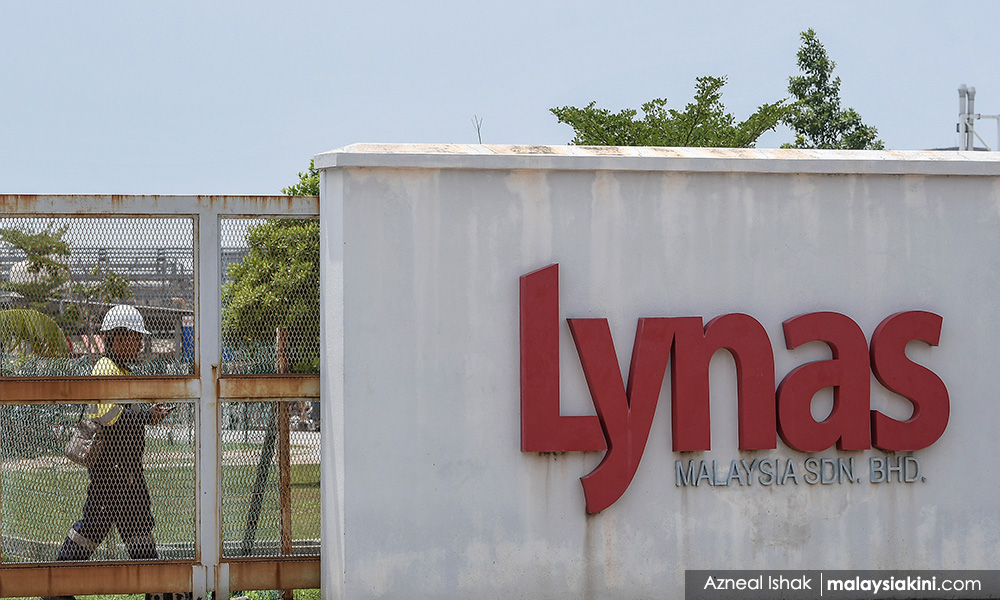Lynas may have its licence revoked if it fails to relocate its cracking and leaching facility, which produces radioactive water leach purification (WLP) residue, out of Malaysia before July.
Science, Technology, and Innovation Minister (Mosti) Chang Lih Kang confirmed this when asked about the matter today.
“Yes, definitely, because if Lynas fails to comply with the conditions imposed on them, their licence could be revoked,” Chang said in a press conference in Parliament today.
It was reported yesterday that the government has renewed the operating licence for Lynas’ processing plant in Gebeng, Kuantan for three years, effective from March 3.
However, the licence was renewed with the same conditions imposed by the Pakatan Harapan administration in 2020.
The key conditions include relocating the cracking and leaching facility out of Malaysia before this July, after which it will no longer be allowed to import lanthanide concentrate into the country.
Another key condition would be to construct a permanent disposal facility (PDF) to store the existing waste from when it began operating in 2012.
Chang also said there would be no incentive for Lynas to import lanthanide concentrate from Australia or anywhere else into Malaysia, or source local supply, as the aim of the conditions was to stop all cracking and leaching in Malaysia.
“The gist of the conditions is to stop all processes that might produce any radioactive waste in Malaysia,” he said.
He also acknowledged that while some job loss could occur from this, the country cannot afford to allow Lynas to continue its cracking and leaching activities “until and unless we can settle this waste management issue”.
PDF in progress
Chang, who is also PKR vice-president, said the PDF construction located near the Gebeng plant is still in progress, at about 32 percent completion.
“There was a delay because the first location was not approved and then Covid-19 happened… so I think 32 percent (completion) is reasonable.
“We can’t tell when the actual completion will be but it is on track,” he said.
Meanwhile, Lynas is also in the process of building a cracking and leaching plant in Kalgoorlie, Australia.
That facility is at about 80 percent complete and Chang said he is confident it can be finished by July 2023.
If they are unable to do so, Chang acknowledged that there are still avenues for the Australian company to appeal for a deadline extension.
Lynas had previously appealed to drop the licence renewal conditions regarding the cracking and leaching activity but Chang said the appeal was rejected.
Thus, if not removed by July 1, the cracking and leaching component of the Lynas Malaysia plant would be forced to cease operations.

Renewal conditions ‘not new’
Lynas Rare Earths CEO and managing director Amanda Lacaze said they were disappointed that the conditions to their operating licence were maintained, despite their “10 years of safe operation in Malaysia”.
In today’s press conference, Chang said he was sorry to hear of her disappointment but pointed out that the conditions have existed since March 2020.
“So, it is not a new thing. I think they are well aware of it, we just continued the policy,” he said.
When asked if there were concerns Lynas may pull out of Malaysia entirely, he said it is up to the company but he does not believe so, reiterating that the conditions are not new.
Chang also admitted that it is hard to quantify whether Malaysia had a net gain or loss from Lynas operating tax-free for 12 years.
“But what I can tell is there is a fracture. The lanthanide concentrate, they process it in Malaysia with cracking and leaching, the waste is managed in Malaysia and they have to store it in Malaysia but the end product is sold to other countries,” he said.
It was previously reported by Malaysiakini that the minister and cabinet are torn between pressure from foreign powers and the expectations within PKR as well as from voters.
The Lynas Malaysia plant is the world’s largest single rare earth processing facility and the only scale producer of separated rare earth outside China.
The rare earth products produced by Lynas are strategic resources for the US, Australia, and Japan, used in the manufacturing of smartphones, electric cars, engines for military jets, and others.
China is the biggest supplier of rare earth, with a 60 percent share of global production while other suppliers include the US, Myanmar, Australia, and Madagascar.
When the trade war between US and China escalated, the US and its allies became concerned about rare earth processing industries outside China, including Malaysia. - Mkini




No comments:
Post a Comment
Note: Only a member of this blog may post a comment.